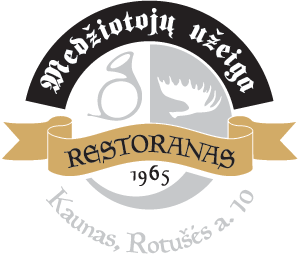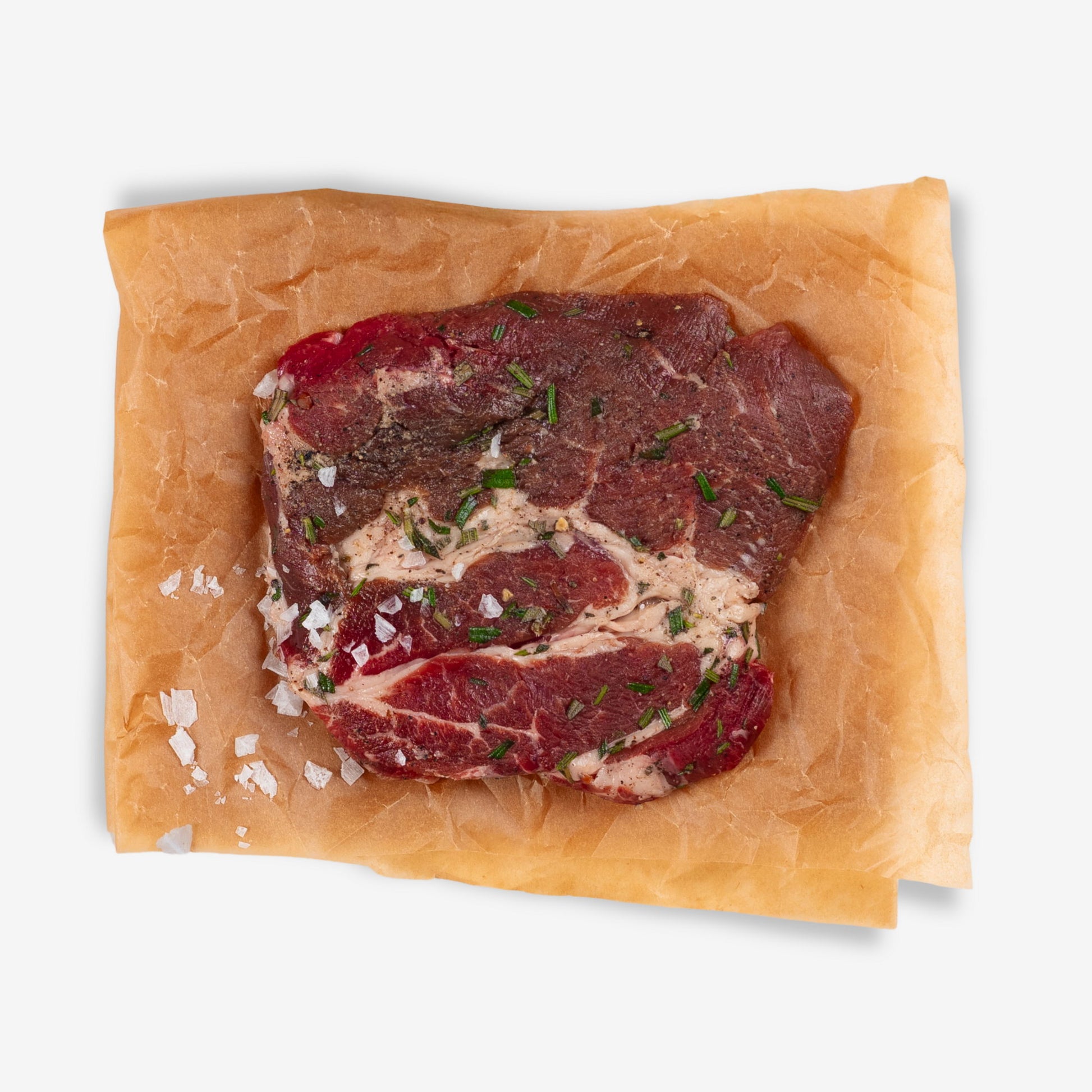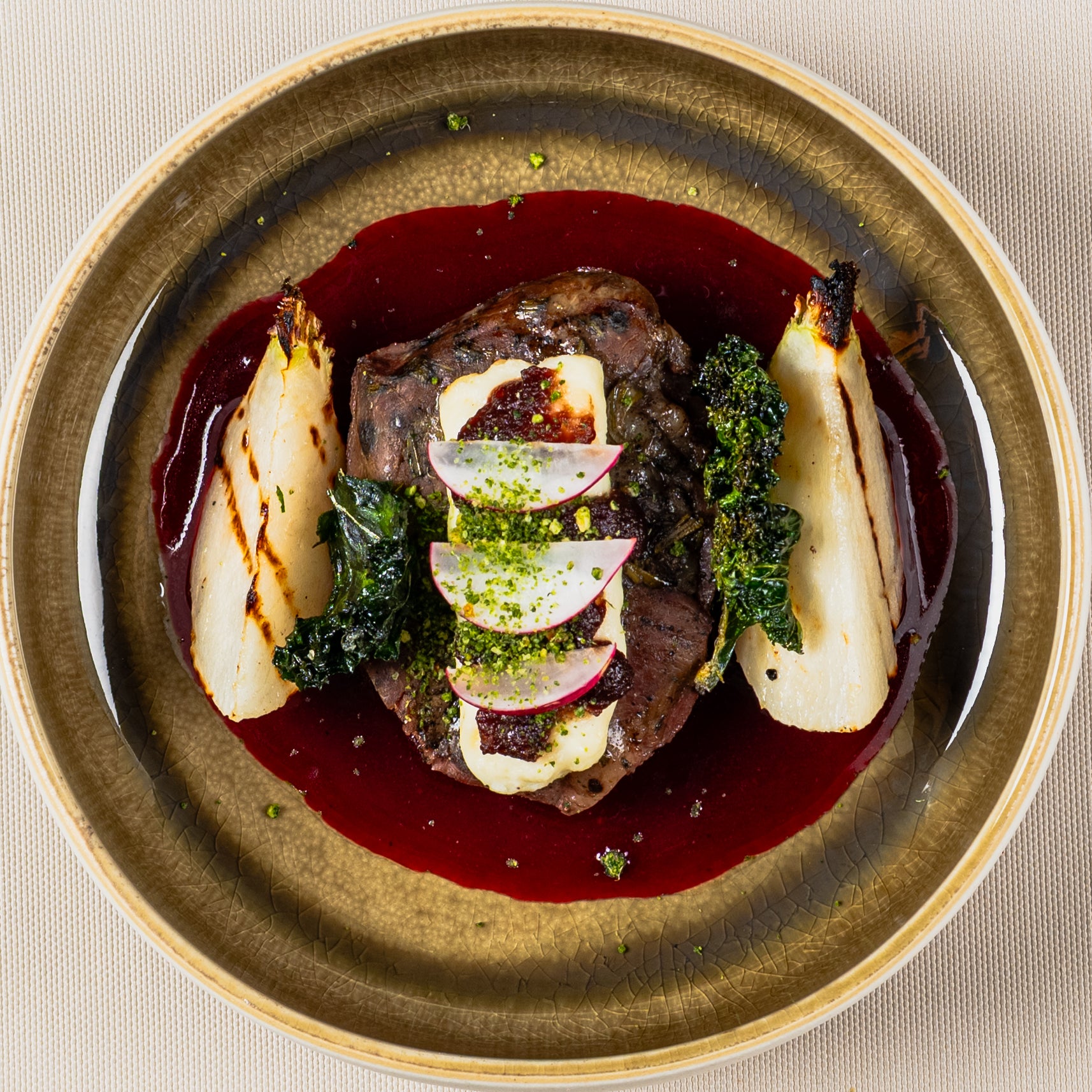Wild Boar Neck (0.5 kg)
Wild Boar Neck (0.5 kg)
Couldn't load pickup availability
- Blast-frozen and vacuum-packed.
- Not frozen – fresh (during hunting season) or thawed, vacuum-packed.
- Actual product appearance may vary from the photo.
- Minimum order amount - 30 EUR.
- Delivered via DPD Fresh (1–2 business days). Weekdays only (no shipping on weekends).
- Pick-up available at Inovacijų street 1, Biruliškės, 54469 Kaunas district.



Wild boar neck
It is one of the most valuable parts of wild boar. Wild boar neck is characterized by natural fat, which gives it a special softness and rich taste. Due to the evenly distributed fat and collagen, this meat is softer than ham or shoulder, and the muscle structure gives it a pleasant firmness. Unlike leaner parts of wild boar, the neck remains juicy and aromatic, which is why it is extremely versatile and a favorite of gourmets.
— HOW TO MAKE
Wild boar neck is best cooked slowly or braised. It can also be cooked faster, but it is important not to overcook it to prevent it from drying out. It is best to roast it in the oven at a low temperature so that the fat and collagen gradually melt, giving the meat a special tenderness. When grilling, it is important to use medium heat so that the meat does not lose moisture. Wild boar neck can be cooked quickly in a pan, but after cooking it is worth leaving it in the oven for a while or letting it rest so that the juices distribute evenly. Wild boar must be well cooked, and the cooking temperature should reach at least 65–70 °C (medium). Rare or medium-rare (50–57 °C) is not recommended.
— BEST
![]()
![]()
![]()
![]()
It is the main building block for new cells and tissues. Proteins are needed for the formation and repair of bones, muscles, and connective tissues. They help build muscle mass, lose weight, and slow down the aging process. If the body does not have enough protein, resistance to infectious diseases decreases. It is recommended to consume 0.8 g of protein per kilogram of body weight per day. If a person weighs 80 kg, it would be recommended to consume 64 g of protein per day.
Vitamins are essential for the normal development and functioning of the body. A sufficient amount of them helps to strengthen the body, increase its efficiency and resistance to harmful environmental influences and diseases.
Vitamin A 2µg
Vitamin E 0.6mg
Vitamin B1 (thiamine) 1.48mg
Vitamin B2 (riboflavin) 0.39mg
Vitamin B3 (niacin) 6.6mg
Vitamin B6 (pyridoxine) 0.54 mg
Vitamin B9 (folic acid) 2µg
Vitamin B12 (cobalamin) 1.4µg
Minerals are inorganic substances found both in nature and in the human body. Humans need them in relatively small but precise amounts to maintain health and perform vital functions.
Calcium (Ca) 4mg
Potassium (K) 367mg
Sodium (Na) 66mg
Iron (Fe) 1.8mg
Magnesium (Mg) 26mg
Phosphorus (P) 220mg
Selenium (Se) 13µg
Zinc (Zn) 2.7mg
Iodine (I) 3µg

Slow-roasted wild boar neck
The perfect example of slow-cooked meat – rich flavor and natural tenderness in every bite – for true lovers of good food!



